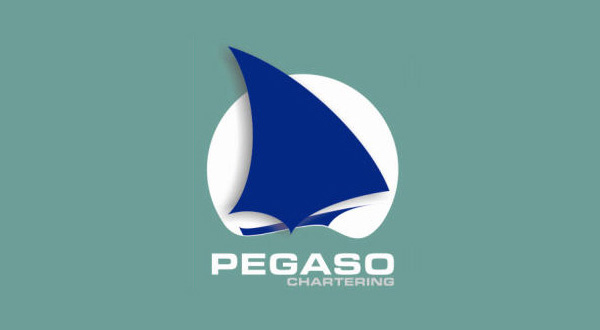
|  |  |  News from Around Banderas Bay | December 2008 News from Around Banderas Bay | December 2008  
Whale Watching Season Begins in Puerto Vallarta
 Bill Knight - PVNN Bill Knight - PVNN


| | Pegaso Chartering has been operating Banderas Bay whale watching tours since 1994. To make your reservations and save 10% off their regular prices send an email to PegasoPV@prodigy.net.mx |  |
Here at Pegaso Chartering, we recently received our permits for the 2008/2009 Puerto Vallarta whale watching season, but we also received notice about a crisis in whale watching in Banderas Bay.

The good news for Humpback Whales is that a recent international study called SPLASH shows that the population of Humpback Whales in the North Pacific has been estimated between 18-20,000 whales with an increase of 6-7% per year.

Because Humpback Whale populations are rising at a stable rate, the severity of their listing as an endangered species has been reduced. This is fantastic news for the whales but it also causes a concern for naturalists who fear the Japanese will increase pressure for permission to start hunting the whales again.

The bad news specifically for Banderas Bay is that even though the general population of Humpback Whales is increasing in the Northern Pacific, the number of whales visiting Banderas Bay is decreasing with continued changes in behavior.

The study shows that fewer Humpback Whales are visiting the Bay and they are spending less time in the Bay when they do visit. Also, in the past mothers with calves were always concentrated along the north coast as the shallower water provided more protection and security but recently mothers and calves have been spotted scattered throughout the Bay with the mothers possibly looking for other locations to prepare their calves for the journey north.

The reasons for the change in behavior were presented in 3 categories:

1. Increased construction along the north side of the Bay has possibly contaminated the waters.

2. Increased traffic inside the Bay with a dramatic increase in the number of cruise ships and private vessels.

3. Whale Watching in Banderas Bay has been "red flagged" as one of the worst places in the world for whale watching as many local tour operators do not have whale watching permits and do not have the knowledge or experience to watch the Humpback Whales in a manner that does not bother and stress the whales. There are also a number of private boats that also do not know or follow the recommended form to watch whales and unfortunately, there are several tour operators who ignore the regulations and are also very aggressive with the whales.

Local biologists have declared a crisis with whale watching within the Bay of Banderas that if action is not taken immediately, within a few years the Humpback Whales may decide not to return to Banderas Bay - which has occurred in several other locations in the North Pacific.

SEMARNAT (Government Agency that is responsible for regulating activities that may impact or damage the environment) has set standards and regulations for whale watching and PROFEPA is the agency responsible for seeing that the regulations are followed.

But PROFEPA has various challenges. The Bay of Banderas is divided between the states of Jalisco (Puerto Vallarta) and Nayarit (Nuevo Vallarta). As often occurs when responsibility is divided between two agencies, no single person is responsible and therefore, no single person is accountable.

The other serious problem is that for the entire states of Jalisco and Nayarit there are only 9 inspectors who in the past have had not equipment or resources to patrol the Bay. This year, because of the looming crisis with the Humpback Whales, they have been promised the equipment that they need and they have initiated a new program to train more inspectors specifically for whale watching.

There are three tour operators, (Pegaso Chartering, Open Air Expeditions, and Wildlife Connections) who have operated in Banderas Bay longer than any other and have watched and reported the decline in the quality of whale watching over the last 15 years.

We are hoping that the local authorities finally have the resources and initiative to stop the decline of Humpback Whales visiting Banderas Bay. However, there are several things conscientious visitors can do that will greatly help:

1. Understand the Regulations

All boats with permits are allowed to approach the whales in a nonaggressive manner from the sides to a distance of 30 meters

Boat that have a permit have a maximum limit of 30 minutes with any whale or group and than must leave and continue there tour.

Only two boats are allowed to watch the same whale or group at any time.

Non Authorized boats can only approach whales to 80 meters for a maximum of 10 minutes.

Any boat travelling at high speed should have a crew member at the front of the boat whose only job is to watch for whales and avoid possible collision.

2. When you are offered a whale watching trip, make sure the boat has permits to see whales.

Each authorized vessel is required to have a copy of their permit onboard and raise the orange whale watching flag (each year the color changes.)

3. If you are sold a whale watching trip and the boat does not have a permit, return to the person who sold you the tour, demand a complete refund, and then report the incident to local authorities and write to BanderasNews.

4. If the whale watching trip you are on does not follow the rules listed above, report the action immediately to the person who sold you the tour and write to BanderasNews.

If everyone does not act in a conscientious and responsible manner now, then it is likely that within a few years Humpback Whales will no longer visit Banderas Bay (which is listed on old mariners charts as Humpback Bay.)
 
Whether you are into whale watching, snorkeling, fishing, beach combing, or you just want to spend a lazy day of sailing, relaxing in the breeze and sunbathing while enjoying great music, tasty food and excellent scenery, climb aboard one of Pegaso's sailboats for "The Best Day of your Puerto Vallarta Vacation!" For more information about Pegaso Chartering's kid-friendly sailing tours, click HERE. |

 |
|  |



